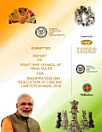Autonomy, Rationality, and Contemporary Bioethics
ມ.ສ. 2020 · Oxford University Press
ປຶ້ມອີບຸກ
352
ໜ້າ
family_home
ມີສິດ
info
reportບໍ່ໄດ້ຢັ້ງຢືນການຈັດອັນດັບ ແລະ ຄຳຕິຊົມ ສຶກສາເພີ່ມເຕີມ
ກ່ຽວກັບປຶ້ມ e-book ນີ້
This is an open access title available under the terms of a CC BY-NC-ND 4.0 International licence. It is free to read at Oxford Scholarship Online and offered as a free PDF download from OUP and selected open access locations. Personal autonomy is often lauded as a key value in contemporary Western bioethics. Though the claim that there is an important relationship between autonomy and rationality is often treated as uncontroversial in this sphere, there is also considerable disagreement about how we should cash out the relationship. In particular, it is unclear whether a rationalist view of autonomy can be compatible with legal judgments that enshrine a patient's right to refuse medical treatment, regardless of whether the reasons underpinning the choice are known and rational, or indeed whether they even exist. Jonathan Pugh brings recent philosophical work on the nature of rationality to bear on the question of how we should understand personal autonomy in contemporary bioethics. In doing so, he develops a new framework for thinking about the concept of autonomy, one that is grounded in an understanding of the different roles that rational beliefs and rational desires have to play in it. Pugh's account allows for a deeper understanding of d the relationship between our freedom to act and our capacity to decide autonomously. His rationalist perspective is contrasted with other prominent accounts of autonomy in bioethics, and the revisionary implications it has for practical questions in biomedicine are also outlined.
ກ່ຽວກັບຜູ້ຂຽນ
Jonathan Pugh is a Postdoctoral Research Fellow in Applied Moral Philosophy at the University of Oxford and Manager of the Visiting Programme for the Oxford Uehiro Centre for Practical Ethics. His research interests lie primarily in issues concerning personal autonomy in practical ethics, particularly topics pertaining to informed consent. He has also written on the ethics of human embryonic stem cell research, criminal justice, human enhancement, gene-editing, and neuroethics.
ໃຫ້ຄະແນນ e-book ນີ້
ບອກພວກເຮົາວ່າທ່ານຄິດແນວໃດ.
ອ່ານຂໍ້ມູນຂ່າວສານ
ສະມາດໂຟນ ແລະ ແທັບເລັດ
ຕິດຕັ້ງ ແອັບ Google Play Books ສຳລັບ Android ແລະ iPad/iPhone. ມັນຊິ້ງຂໍ້ມູນໂດຍອັດຕະໂນມັດກັບບັນຊີຂອງທ່ານ ແລະ ອະນຸຍາດໃຫ້ທ່ານອ່ານທາງອອນລາຍ ຫຼື ແບບອອບລາຍໄດ້ ບໍ່ວ່າທ່ານຈະຢູ່ໃສ.
ແລັບທັອບ ແລະ ຄອມພິວເຕີ
ທ່ານສາມາດຟັງປຶ້ມສຽງທີ່ຊື້ໃນ Google Play ໂດຍໃຊ້ໂປຣແກຣມທ່ອງເວັບຂອງຄອມພິວເຕີຂອງທ່ານໄດ້.
eReaders ແລະອຸປະກອນອື່ນໆ
ເພື່ອອ່ານໃນອຸປະກອນ e-ink ເຊັ່ນ: Kobo eReader, ທ່ານຈຳເປັນຕ້ອງດາວໂຫຼດໄຟລ໌ ແລະ ໂອນຍ້າຍມັນໄປໃສ່ອຸປະກອນຂອງທ່ານກ່ອນ. ປະຕິບັດຕາມຄຳແນະນຳລະອຽດຂອງ ສູນຊ່ວຍເຫຼືອ ເພື່ອໂອນຍ້າຍໄຟລ໌ໄໃສ່ eReader ທີ່ຮອງຮັບ.







